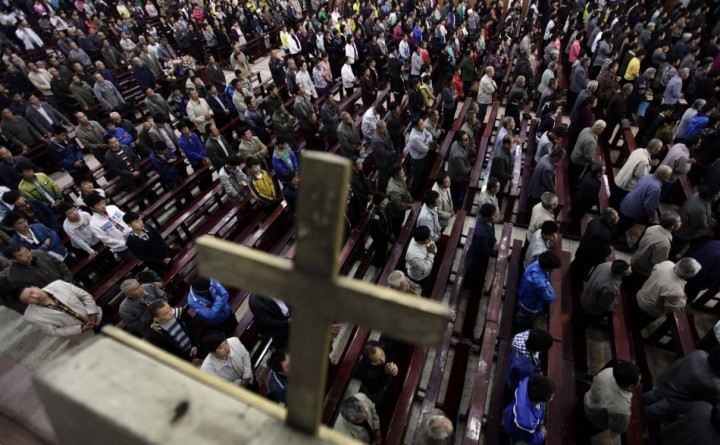
While Christianity continues to weaken in many parts of the world, China's Christian churches are experiencing significant growth despite government restrictions.
"Some Sundays we are full. We also have 1,600 volunteers," said Zhou Lianmei, the pastor's wife of the Chongyi Church, one of the biggest mega-churches in the country. The convention-building sized church holds up to 5,000 worshipers and there are several services available every Sunday.
"I come because I found a love here that isn't dependent on a person. It is like a river that doesn't go away," stated a young businesswoman from Hangzhou, the city where Chongyi Church is located.
The city of Wenzhou, often referred to as "China's Jerusalem," is home to over 1 million Protestants out of a population of 9 million. Experts believe that by 2030, China will hold the most Christians on the planet based on current growth rates.
"Chinese Christians know the Bible better than some Southern Baptists. That's not a small thing," Philip Wickeri, a Christian leader in Hong Kong, told the Business Insider.
For many years, Christianity was seen as a religion for elderly peasant women. However, that view has significantly changed: many of the newly baptized Chinese Christians are young, well educated and earn a comfortable living.
Last year, half a million Christians were baptized in the country, according to China's chief of religious affairs. Texas-based Baylor University and Peking University conducted a joint study that estimated 70 million Christians over 16 years of age reside in China.
Some Christians are even incorporating Biblical principles into their businesses. One company in China asks members to pledge a "Ten Commandments" of good behavior that includes "no bribing, no taking mistresses, no avoiding taxes, and no mistreating employees."
Although China's Christian population is growing, the government continues to tighten its hold on the faith. Over the past year, the country's Communist police have bulldozed church buildings, demolished crosses, and destroyed religious artifacts.
One church offered to pay a series of fines in the belief that the attacks were about money. "We were fooled at first," says one local pastor. "Then we discovered they didn't care about fines. They went after our crosses and gave the impression they enjoyed it." The aim was to humiliate and shame, he believes.
As the attacks continue, church leaders are unsure of how to respond - whether to publicly challenge the crackdown or not, as the government holds the power to make the situation far worse.
"Many Christians are scared of the government," says Ling Cangzhou, a Christian blogger in Beijing. "In China you rely on the government for jobs, position, for money. Families and relatives are affected. Dissidents don't get promotion or advancement."
Despite government opposition, the growing trend of Christianity doesn't appear to be stopping anytime soon.
"Chinese have a yearning heart, that is really the reason," one woman who goes to the Zion house church in Beijing told the Business Insider. "We need love, and in some ways it is that simple."














